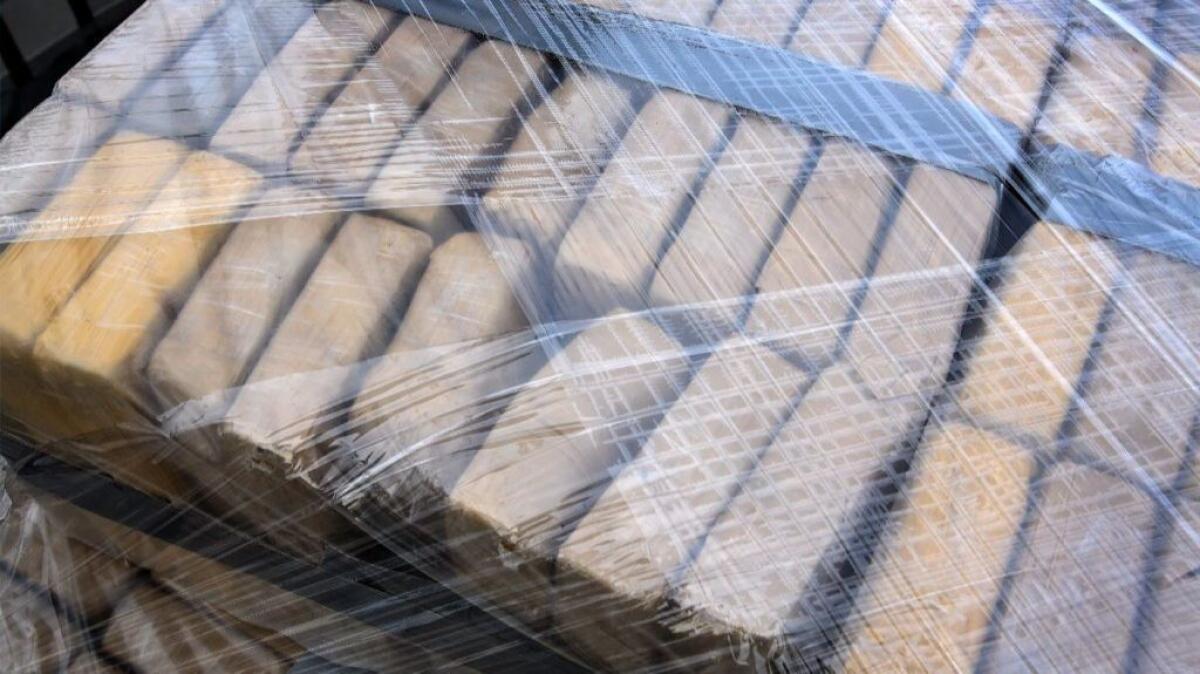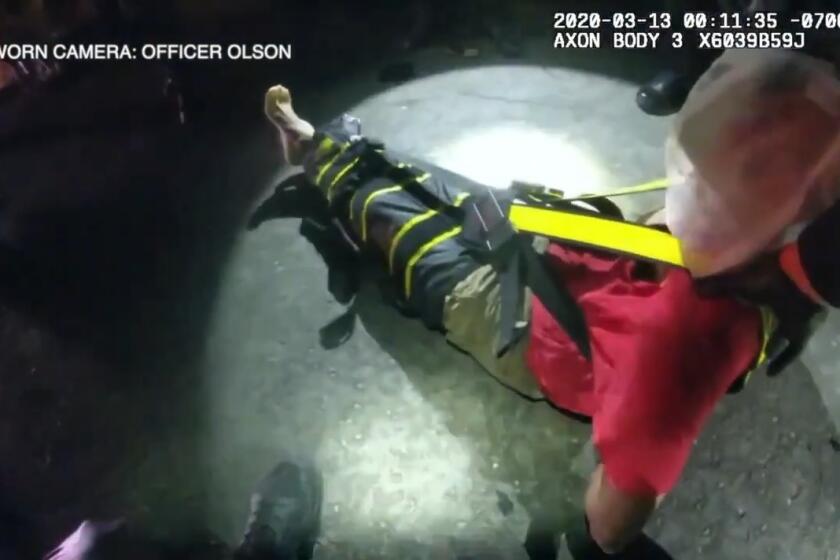Ecuador boat captain gets prison for 1,300-lb. cocaine load

A boat captain caught shuttling more than 1,370 pounds of cocaine in the Eastern Pacific was sentenced in San Diego federal court this week to 104 months in prison.
Jesus Armando Portocarrero-Angulo, 33, of Ecuador, was apprehended along with two crewmembers on Oct. 4, 2016, aboard a go-fast vessel named “Pez Sierra,” according to the U.S. Attorney’s Office. The boat had three outboard motors on it.
A maritime patrol aircraft was on routine patrol when the boat was spotted about 175 nautical miles northeast of the Galapagos Islands of Ecuador, and the occupants were seen throwing objects into the water, prosecutors said.
The U.S. Coast Guard cutter Waesche responded to the area and retrieved 21 bales of cocaine from the ocean. GPS equipment was also recovered.
A helicopter on the cutter then located the boat and ordered it to stop, but the commands were ignored. The helicopter crew fired warning shots and then two precision shots to disable the boat, prosecutors said.
Portocarrero-Angulo pleaded guilty in August to possessing drugs with intent to distribute. The two crewmembers have also pleaded guilty and are set to be sentenced Jan. 8.
The Coast Guard has increased its presence in the Eastern Pacific with the goal of striking traffickers where they are most vulnerable. Record seizures have ensued.
In September, U.S. Attorney General Jeff Sessions visited San Diego to announce the Coast Guard had intercepted at sea more than 455,000 pounds of cocaine, valued at $6 billion, in fiscal 2017.
Most all cocaine consumed in the U.S. is grown in Colombia. Sea shipments typically head for Central America or Mexico and are then smuggled by land into the U.S., authorities said. Production in Colombia has recently increased with the end of aerial fumigation of coca crops and a new subsidy program that gives money to farmers to turn illegal crops to legal ones.
kristina.davis@sduniontribune.com
Twitter: @kristinadavis
The latest news, as soon as it breaks.
Get our email alerts straight to your inbox.
You may occasionally receive promotional content from the San Diego Union-Tribune.




